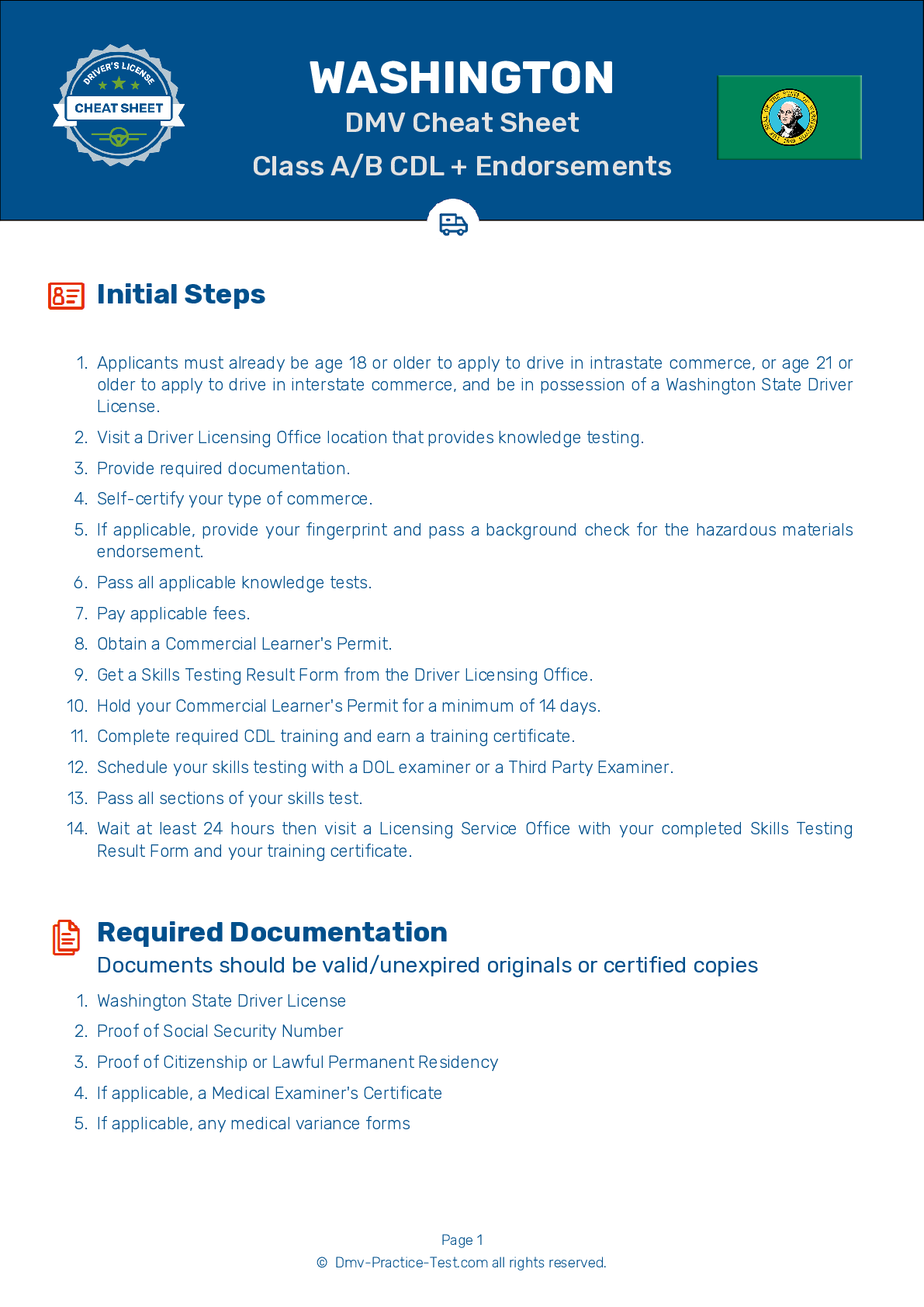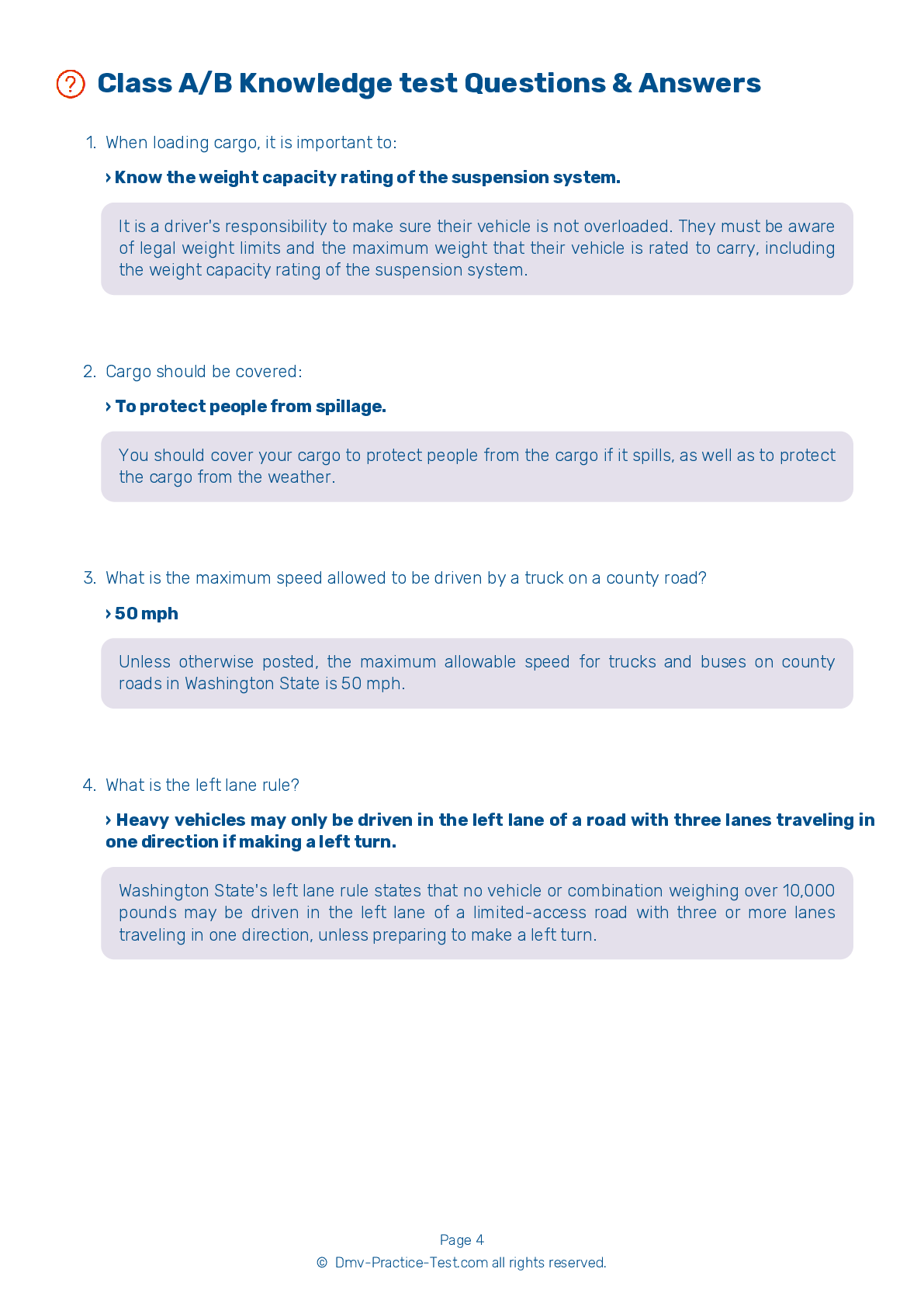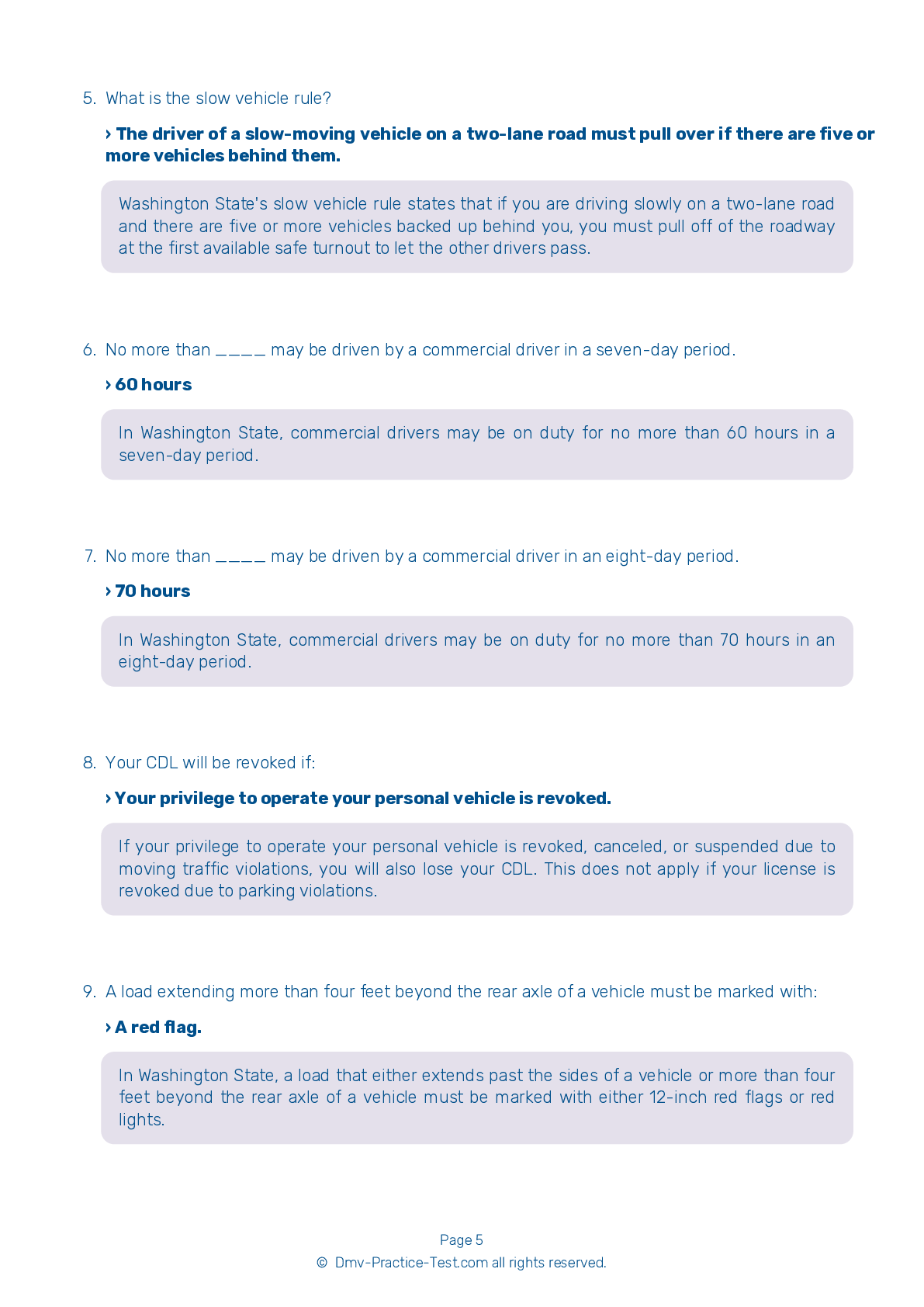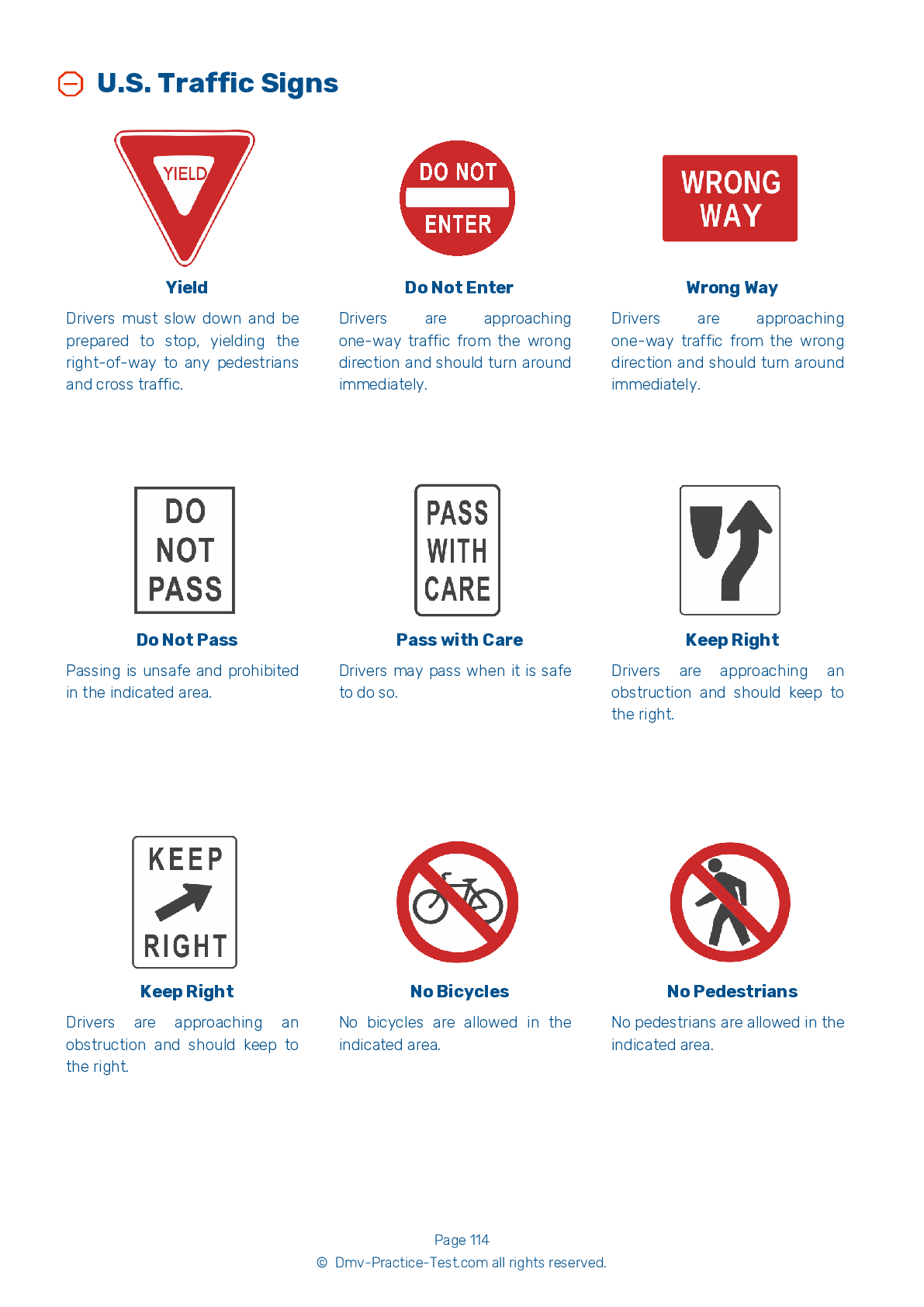Tank #2
Tank Endorsement Test | Washington 2026 #2 Page 3 of 3
Train for FREE with our Washington tank endorsement practice test online. The official exam test consists of several obligatory parts, with all of them checking your knowledge of different blocks of road rules. If you need to obtain a WA tank license in 2026, practice as much as possible. Free sample tests published on our website will help you check and improve your knowledge and boost your grades. Please bear in mind that DMV requirements for issuing a CDL tank vehicle endorsement may vary from state to state.
20
16
20
15 . When driving, you should keep in mind:
To drive safely, it is important to remember how much distance your vehicle will need to stop. Stopping distance for a vehicle can change with road conditions, weather conditions, and the quantity of cargo in the vehicle's tanks.
16 . To use the controlled braking method while transporting liquid cargo, you should apply the brakes:
The controlled braking method for emergency stops involves applying the brakes as hard as you can without locking the wheels. Keep steering wheel movements small when braking in this way.
17 . Older trailers are not equipped with spring brakes. This means that if the air supply for a vehicle's air braking system leaks away:
Older trailers do not have spring brakes. This means that if the air supply in an older trailer's air tank has leaked away, there will be no working brakes connected to the trailer and its wheels will turn freely.
18 . Of the following, which is not a recommended way to spot potential signs of trouble?
During a trip, you should regularly make checks to ensure that your vehicle is operating properly. Check the instrument panel and gauges; look at your mirrors; and examine the tires, cargo, and lights. Use all of your senses and be alert for anything that could be an early indication of trouble.
19 . If you identify hazardous materials leaking while you are driving, you should:
If you discover that a cargo of hazardous materials is leaking from your vehicle, you should park the vehicle as soon as possible. The longer you continue driving, the longer the trail of contamination becomes. While this creates potential danger and harm to others, it also increases clean-up expenses.
20 . Bobtail tractors are ____ to stop than tractors attached to full semitrailers.
Bobtail tractors are tractors that are not attached to any semitrailers. When operating a bobtail, you should be aware that stopping can be difficult and that it will take a longer distance to come to a complete stop than a tractor attached to a loaded semitrailer.
2026 Washington | Frequently Asked Questions
A CDL Class A license in Washington is defined as a commercial driver's license that allows the holder to operate any combination of vehicles with a Gross Vehicle Weight Rating (GVWR) of 26,001 pounds or more, given that the GVWR of the vehicle(s) being towed is in excess of 10,000 pounds.
A Class A Commercial Driver's License (CDL) in Washington allows the holder to operate any combination of vehicles with a Gross Vehicle Weight Rating (GVWR) of 26,001 pounds or more, provided the GVWR of the vehicle(s) being towed exceeds 10,000 pounds. This includes but is not limited to tractor-trailers, truck and trailer combinations, and tank vehicles.
To obtain a Class A CDL license in Washington, you must be at least 18 years old (21 for interstate driving), possess a valid Washington state driver's license, pass a vision test, and pass knowledge and skills tests. You'll also need to provide proof of U.S. citizenship or lawful permanent residency, and meet medical requirements.
In Washington, you must be at least 18 years old to qualify for a Class A Commercial Driver's License (CDL) for intrastate driving (within Washington only). However, federal regulations require drivers to be at least 21 years old to drive a commercial vehicle interstate (across state lines) or to haul hazardous materials.
While not always required, specific endorsements may be necessary for a Class A CDL license depending on the type of vehicle you'll operate or cargo you'll carry. These can include endorsements for double/triple trailers, tanker vehicles, passenger vehicles, or hazardous materials. Each endorsement requires additional knowledge tests and sometimes a skills test.
The Class A CDL skills test in Washington encompasses three parts: the pre-trip inspection, basic vehicle controls, and on-road driving. The pre-trip inspection checks your ability to assess your vehicle's safety. Basic vehicle controls assess your ability to maneuver and control the vehicle. The on-road driving test evaluates your driving skills in various traffic situations.
Yes, Class A CDL license holders in Washington may face limitations based on their specific endorsements and restrictions. For instance, without the proper endorsements, they cannot operate vehicles with air brakes, transport passengers, or haul hazardous materials. Additionally, restrictions may be placed on licenses due to medical conditions or lack of skills.
Yes, it is possible to take the written Class A CDL test in languages other than English in Washington. The Department of Licensing offers the test in several languages. However, federal regulations require anyone applying for a commercial driver license (CDL) to understand and read English to ensure safety on the roads.
Yes, you can request accommodations for the Class A CDL written test if you have a disability. Washington's Department of Licensing is committed to providing equal access to its services. If you have special needs, contact your local driver licensing office to discuss your situation and determine what accommodations can be made.
If you don't pass the Class A CDL written test in Washington, you can retake it. However, you must wait at least one day before retaking the test. Keep in mind that there may be additional fees for each attempt. It's advisable to study thoroughly before retaking the test to increase your chances of passing.



